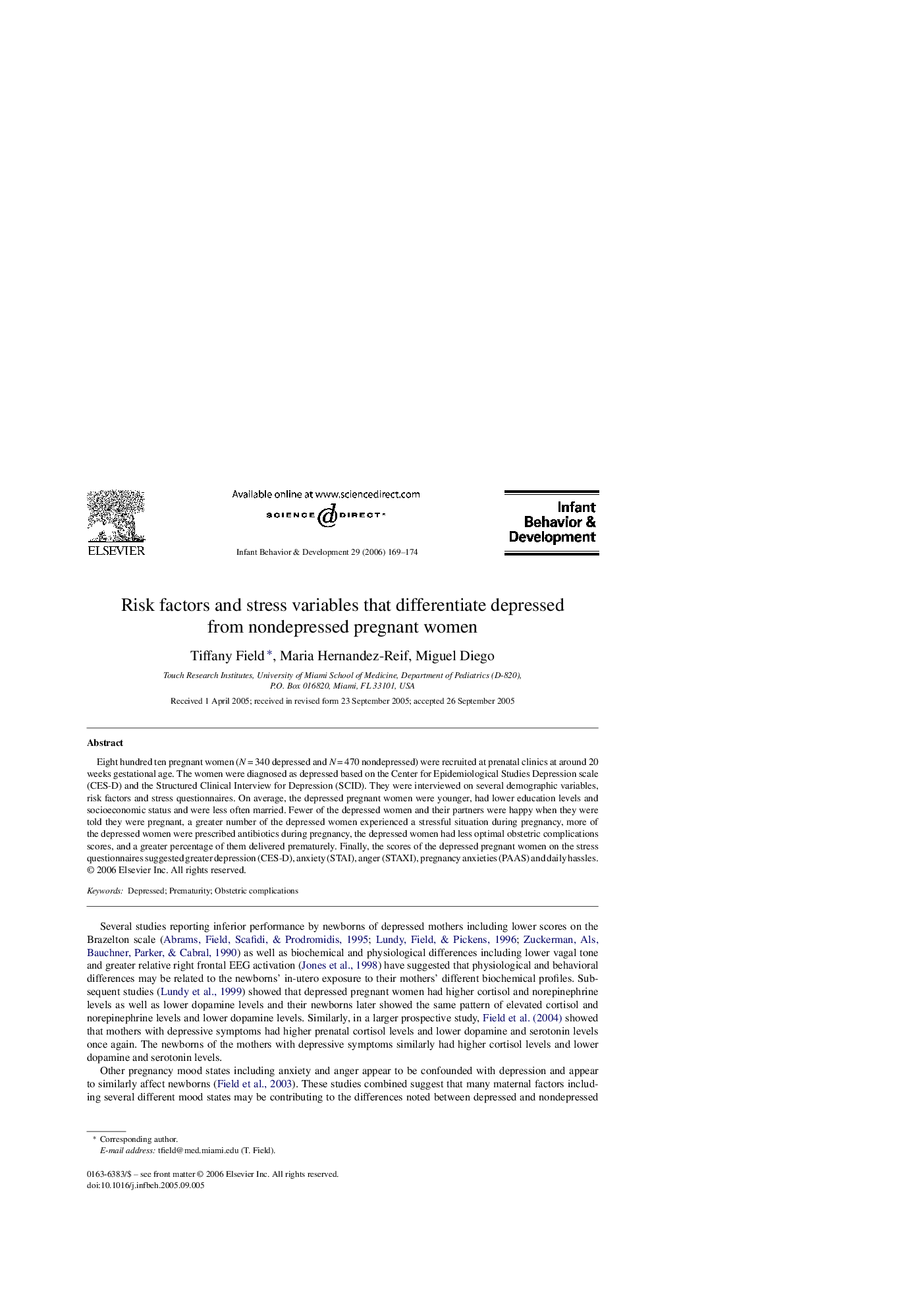| Article ID | Journal | Published Year | Pages | File Type |
|---|---|---|---|---|
| 917698 | Infant Behavior and Development | 2006 | 6 Pages |
Eight hundred ten pregnant women (N = 340 depressed and N = 470 nondepressed) were recruited at prenatal clinics at around 20 weeks gestational age. The women were diagnosed as depressed based on the Center for Epidemiological Studies Depression scale (CES-D) and the Structured Clinical Interview for Depression (SCID). They were interviewed on several demographic variables, risk factors and stress questionnaires. On average, the depressed pregnant women were younger, had lower education levels and socioeconomic status and were less often married. Fewer of the depressed women and their partners were happy when they were told they were pregnant, a greater number of the depressed women experienced a stressful situation during pregnancy, more of the depressed women were prescribed antibiotics during pregnancy, the depressed women had less optimal obstetric complications scores, and a greater percentage of them delivered prematurely. Finally, the scores of the depressed pregnant women on the stress questionnaires suggested greater depression (CES-D), anxiety (STAI), anger (STAXI), pregnancy anxieties (PAAS) and daily hassles.
